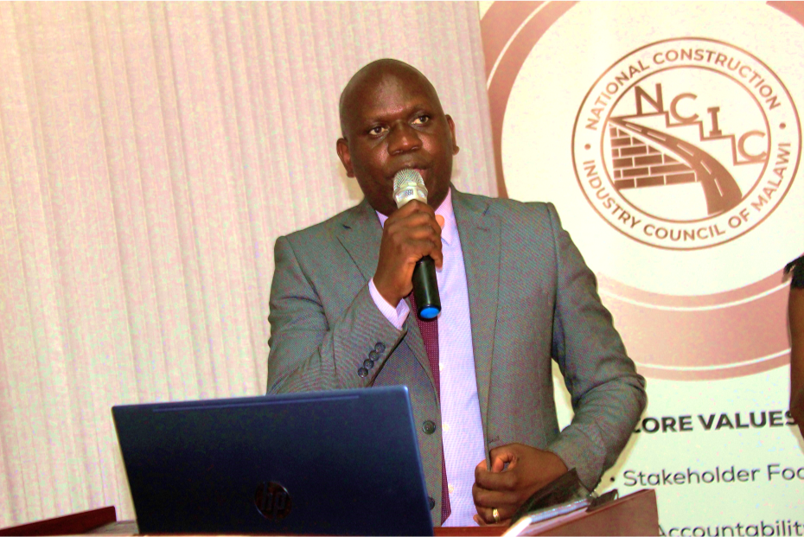
Construction
NCIC warn foreign firms against defying construction laws
November 19, 2021 / Wahard Betha

The National Construction Industry Council (NCIC) has warned foreign construction companies against sidestepping laws that regulate the industry in Malawi.
According to a press statement issued by the Council, some foreign companies working or intending to provide construction services in the country deliberately avoid to comply with the regulations that compel them to provide services through joint ventures or subcontracting agreements with local firms.
Clarifying on the statement, NCIC Acting Chief Executive Officer, Engineer Gerald Khonje stressed the need for foreign firms to follow both the Subcontracting and Joint Ventures by Foreign and Malawian Construction Firms Order of 2014 as well as The Practice of Construction Consultancy Services by Foreign Consulting Firms Regulations of 2004.
“In line with the Presidential Directive on Micro, Small and Medium Enterprises Order (MSMEs) and the Joint Ventures and Subcontracting Regulations in Construction, NCIC wishes to advise all foreign firms operating or intending to operate in the construction industry in Malawi to ensure compliance to both the Order and Regulations.
“Any foreign firm that is found to be operating contrary to the provisions of the Order or the Regulations stated herein risks disciplinary sanctions which may result in the revocation of its license,” said Khonje stressing the importance of complying with the Order or Regulations before commencement of any construction works or activities.
The National Construction Industry (NCI) Act mandates NCIC to promote and develop the construction industry in the country by giving priority to the general public in a bid to ensure that both foreign and Malawian firms benefit from the industry
Khonje explained that the two documents require local contractors involved in joint ventures to shoulder a minimum of 30 percent of the works by volume and value while local consultants must undertake a minimum of 51 percent of the services agreement.
NCIC further warned Malawian firms against entering into fraudulent agreements aimed at circumventing the provisions of the Order or Regulations, saying such conduct amount to offenses that attract disciplinary actions, which may result in the suspension or revocation of their licenses.
Khonje appealed to firms that have not yet complied with the two documents to do so immediately to avoid delays and disruption of their various works or activities.
NCIC has launched a five-year fraud and corruption prevention policy to create a corrupt-free working environment within the Council as well as the entire construction industry.
The policy focuses on fraud and corruption prevention as much as it also looks at internal systems control.
In the fraud and corruption prevention area, the policy emphasizes on development and implementation of effective fraud and corruption detection and correction systems. While in internal systems control, the policy spearheads adherence and enforcement of other policies including registration procedures, financial policies and procedures, codes of conduct, staff terms and conditions of service, evaluation and monitoring and; enforcement procedures.































